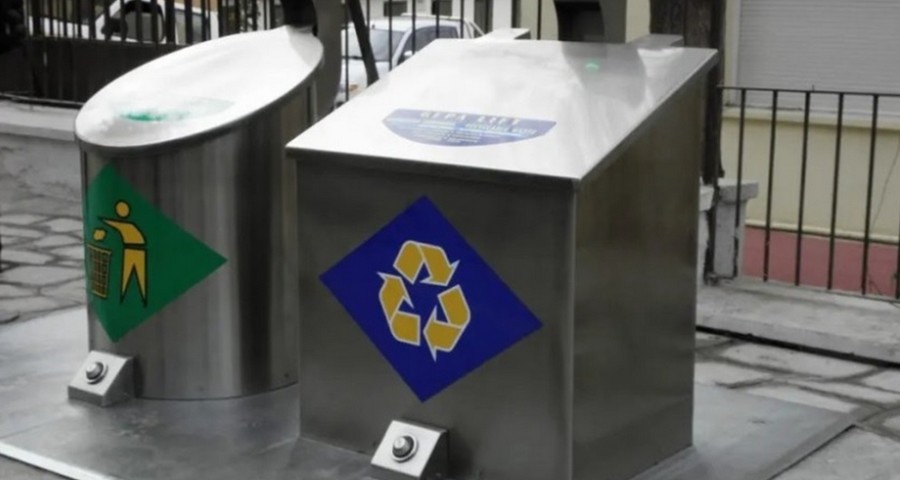Waste Management
Waste reduction, sorting and management plan
The installation of ten new ecological systems of vertical graded waste compression at the Zografou Campus will bring significant improvements in municipal waste management. These systems will reduce the volume of waste and make its collection and transport processes more efficient, limiting the frequency of collection routes and reducing management costs. In addition, encouraging waste sorting at source, recycling and composting efforts will further help reduce the environmental footprint of the institution.
This comprehensive approach shows the commitment of the Technical University to take an active role in the improvement of the urban environment and to contribute positively to the creation of a sustainable future.
Key objectives for sustainable waste management include:
- Raising awareness of the NTUA community on circularity and waste management both in the context of the use of the NTUA facilities and in all daily activities
- Recording, optimization of sorting and ultimately reduction of waste production
- Development of a system for calculating carbon emissions for all categories related to waste
- Exploring/broaden options for switching from consumables to durable packaging materials
- Achieving a fully functional circular economy in waste management within the NTUA community

At the same time, the National Technical University of Athens actively participates in the general management of waste in the Region of Attica through targeted actions. To this end, NTUA intends to develop a comprehensive technical proposal for the creation of a Model Center for the management and exploitation of waste, waste and residues, through the procurement of special electromechanical equipment. The aim of the center will be to offer high-level research and technology services to related institutions. The Center will include two axes, the Recycling/Utilization axis of organic waste, waste and residues and the axis of Recycling/Utilization of metal and plastic materials as raw materials of Additive Manufacturing processes (3D printing).

The research carried out in the INNOMED-UP project, which is coordinated by the National Technical University of Athens, and in which a set of tools was created to enhance the resilience and promote the circularity of various businesses operating in the historic center of Athens, moves along the same path. These tools are a “smart” bin for collecting waste and a “smart” bicycle for transporting it from its collection point to its reconstruction point. The “smart” bins communicate through “smart” technology with the project’s electronic platform, which collects and shares information in an open way, while a “smart” bicycle (also manufactured by NTUA) is notified to collect and distribute the materials to professionals, who will use them for their own constructions.



